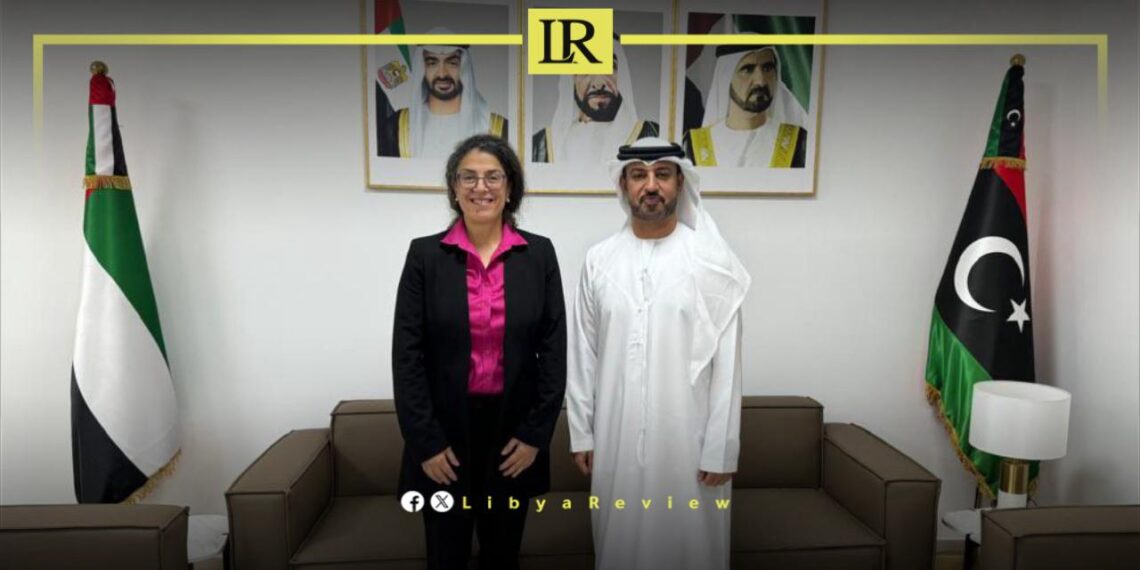The Deputy Special Representative of the United Nations Secretary-General for Political Affairs and Acting Head of the United Nations Support Mission in Libya (UNSMIL), Stephanie Khoury, met with the UAE Ambassador to Libya, Mohamed Al Shamsi, in Tunis on Friday. Their discussions focused on supporting efforts to stabilize Libya and advancing the political process.
In a statement, Khoury announced that the meeting with the UAE Ambassador aimed to bolster efforts for stability and push forward the political process in Libya. This includes conducting elections that would allow Libyans to voice their opinions on the future of their country and address their needs.
This meeting is part of a series of engagements Khoury is conducting with various Libyan parties and stakeholders to break the current political stalemate.
Libya has been in turmoil since the fall of Muammar Gaddafi’s regime in 2011. The country has seen continuous conflict among rival factions vying for control, severely impacting its political stability and development. The United Nations has been actively involved in facilitating dialogue and negotiations to bring about peace and stability in the region.
The United Nations Support Mission in Libya (UNSMIL) was established in 2011 to support the country’s transitional authorities in their post-conflict efforts. UNSMIL’s mandate includes assisting in the political process, promoting human rights, supporting the restoration of public security, and coordinating international assistance.
The United Arab Emirates has been an influential player in Libya, providing both political and financial support to various factions. The UAE’s involvement has been part of a broader strategy to influence the political landscape of the region.
Ambassador Mohamed Al Shamsi’s engagement with UNSMIL underscores the UAE’s interest in contributing to Libya’s stability and political resolution.
Libya’s political process has been marred by disagreements and a lack of consensus among key stakeholders, resulting in a prolonged stalemate. Efforts to hold national elections have repeatedly stalled, with various factions disagreeing on the framework and conditions for the elections. This impasse has hindered the country’s progress toward peace and development.
The emphasis on elections is particularly significant, as they are seen as a pivotal mechanism for achieving legitimacy and stability in Libya. Ensuring that elections are free, fair, and inclusive will be essential for addressing the needs and aspirations of the Libyan people.


